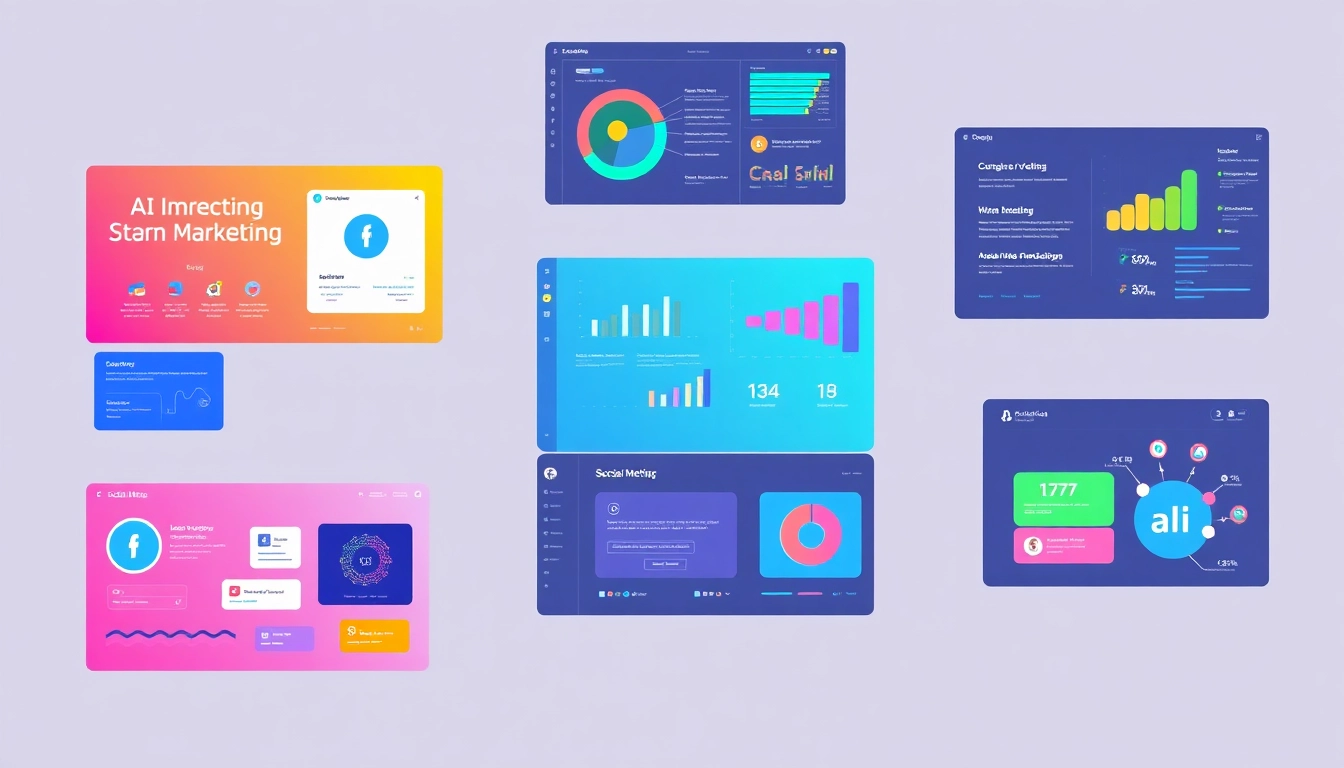Introduction to AI Marketing Tools
In today’s rapidly evolving digital landscape, businesses are increasingly turning to AI marketing tools to enhance their marketing strategies and drive growth. These tools harness the power of artificial intelligence to streamline tasks, gather insights, optimize campaigns, and personalize customer interactions. By automating routine processes and providing valuable data, AI marketing tools allow marketers to focus on strategy and creativity, thus improving overall efficiency and effectiveness in reaching their target audiences.
What Are AI Marketing Tools?
AI marketing tools encompass a wide range of applications, from data analysis and customer segmentation to personalized content creation and social media management. They leverage AI technologies such as machine learning and natural language processing to automate and enhance marketing tasks. This includes chatbots for customer service, analytics platforms for data-driven decision-making, and content generation systems that assist in crafting impactful marketing materials.
Importance in Modern Marketing Strategies
As businesses face increasing competition and consumer expectations, the importance of incorporating AI marketing tools into their strategies cannot be overstated. These tools provide a competitive advantage by enabling companies to analyze large data sets quickly, identify trends, and make informed decisions. Furthermore, AI-driven personalizations have proven highly effective in improving customer engagement, retention, and conversion rates. Brands that adopt these technologies can create more relevant and timely marketing messages that resonate better with their audience.
Overview of Current Trends
The landscape of AI marketing tools is constantly changing. Emerging trends such as the integration of AI in content creation, predictive analytics, and automated customer interactions are shaping how marketers operate. As businesses adopt these innovations, they are increasingly achieving greater efficiency and effectiveness. Additionally, trends like ethical AI practices and data privacy are becoming critical areas of focus, as companies must ensure they use AI tools responsibly while respecting consumer rights.
Key Features to Look For
Data Analytics and Insights
One of the core functionalities of AI marketing tools is their ability to analyze vast amounts of data quickly and accurately. Look for tools that provide comprehensive analytics dashboards that can track key performance indicators (KPIs) such as customer behavior, campaign effectiveness, and return on investment (ROI). For example, analytics tools like Google Analytics have integrated AI capabilities, allowing users to gain deeper insights into their audience’s preferences and behaviors.
Automation Capabilities
Automation is a significant advantage offered by AI marketing tools. They can handle repetitive tasks such as email sequencing, social media postings, and data entry, freeing up time for marketers to strategize and innovate. Tools like HubSpot and Mailchimp are renowned for their automation features, allowing for automated workflows that lead to improved efficiency and reduced operational costs.
User-Friendly Interfaces
The effectiveness of any marketing tool is closely tied to its usability. A user-friendly interface lowers the learning curve for teams and increases adoption rates. Tools that offer intuitive designs and straightforward functionality, such as Canva for design and Jasper for content generation, can empower marketing teams to leverage AI without deep technical knowledge.
Top 10 AI Marketing Tools for Businesses
1. Tool A: Features and Benefits
Tool A, such as Jasper, is an acclaimed AI writing assistant that offers features like content generation, SEO optimization, and language translation. Its ability to generate human-like text makes it a valuable asset for marketers looking to enhance their content strategy without sacrificing quality.
2. Tool B: Use Cases
HubSpot serves as an all-in-one marketing platform that integrates CRM services with marketing automation features. It allows businesses to manage their email campaigns, social media, and customer interactions while providing analytic reports to refine their strategy.
3. Tool C: Pricing and Value
Mailchimp remains a popular choice for email marketing, known for its powerful automation features and analytics capabilities. With plans starting from free tiers for small businesses to more comprehensive paid versions, it offers options that fit various budgets and needs.
How to Implement AI Marketing Tools Effectively
Integrating Tools into Your Workflow
Successful integration of AI marketing tools requires careful planning and execution. Start by identifying specific areas within your marketing strategy where these tools can provide the most value. For instance, if data analysis is lacking, investing in an advanced analytics tool might be your priority. Continuous training and support are also crucial, as your team will need to adapt to these new methodologies.
Measuring Performance and ROI
Establishing clear metrics to measure the success of your AI marketing tools is essential. Common metrics include conversion rates, customer acquisition costs, and engagement levels. Tools like Google Analytics can help you track these metrics effectively, while advanced AI tools can provide predictive insights that shape future strategies.
Common Challenges and Solutions
Adopting AI tools comes with its challenges, such as data privacy concerns, potential biases in algorithms, and resistance to change within teams. Addressing these issues requires open communication about the benefits of AI, alongside robust frameworks to ensure ethical usage of data. Providing thorough training can also help minimize resistance and empower staff to utilize these tools proficiently.
Future of AI in Marketing
Emerging Technologies and Trends
The future of AI in marketing appears promising, with technologies like augmented reality (AR) and virtual reality (VR) poised to transform customer experiences. Additionally, advancements in natural language processing will enhance conversational marketing, allowing for even more personalized customer interactions through chatbots and voice assistants.
Potential Impact on Customer Engagement
As AI technology evolves, it will further shape customer engagement strategies through personalized content delivery, timely communication, and enhanced customer service. The capability to analyze customer data will lead to refined targeting, ultimately resulting in more meaningful interactions between brands and their audiences.
Preparing for Changes in the Digital Landscape
For businesses aiming to remain competitive, staying ahead of the technological curve is paramount. This includes investing in ongoing education and tool updates to ensure that marketing strategies leverage the latest advancements in AI. Additionally, understanding trends in consumer behavior, such as preferences for sustainable and ethical brands, will guide effective implementation of AI marketing strategies.



